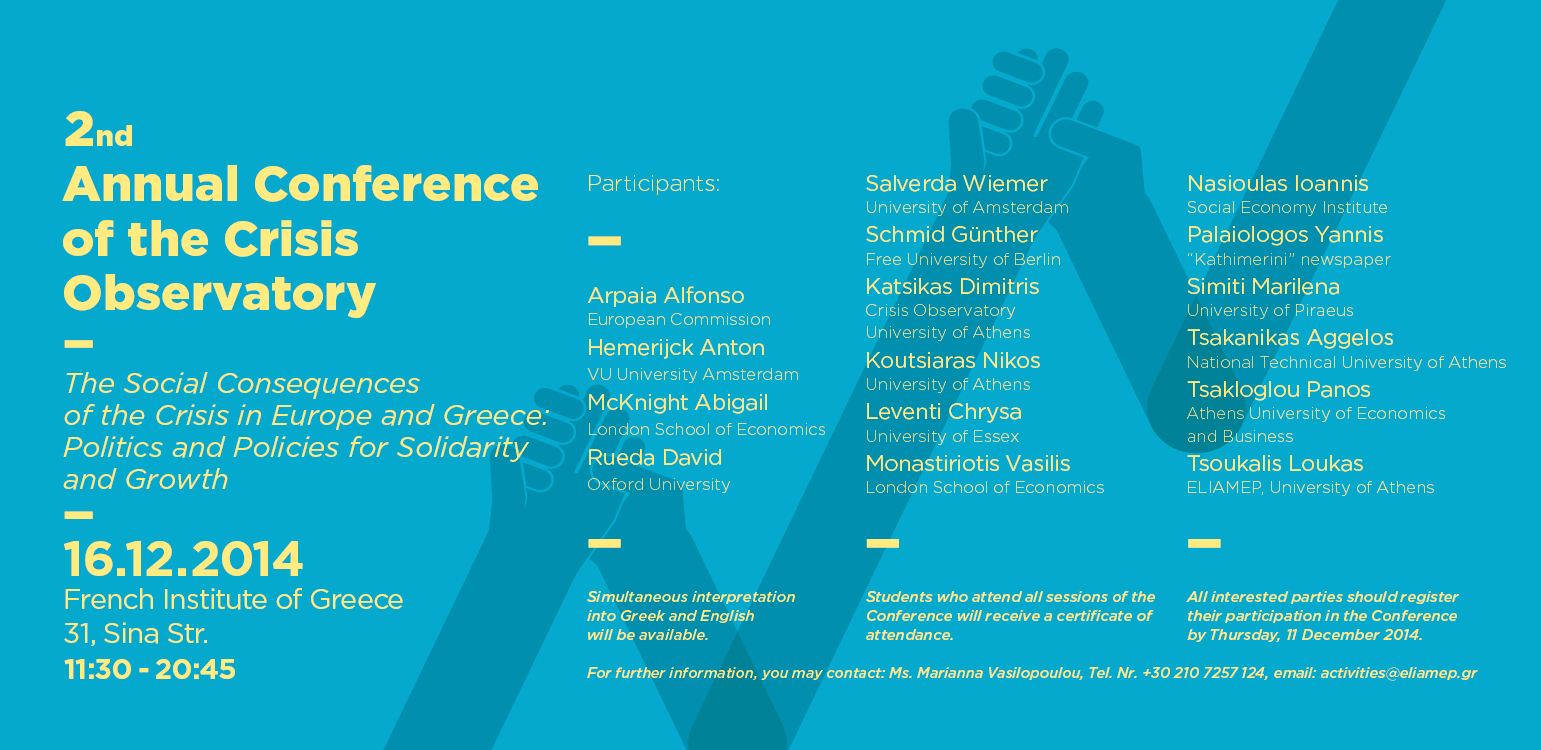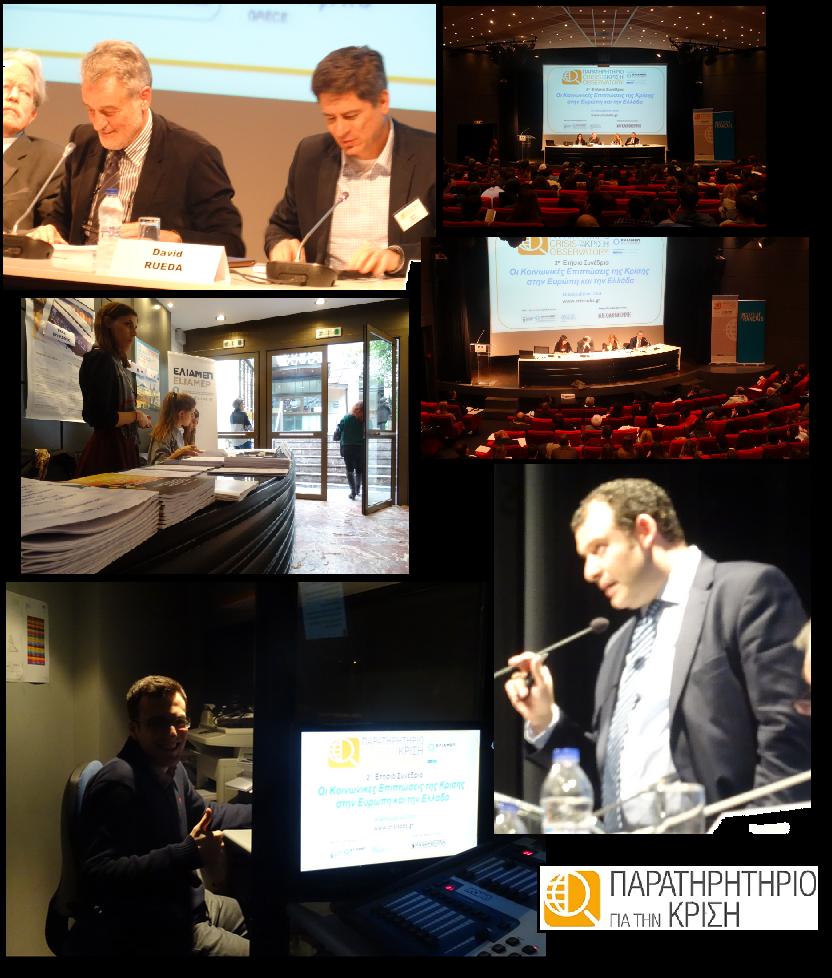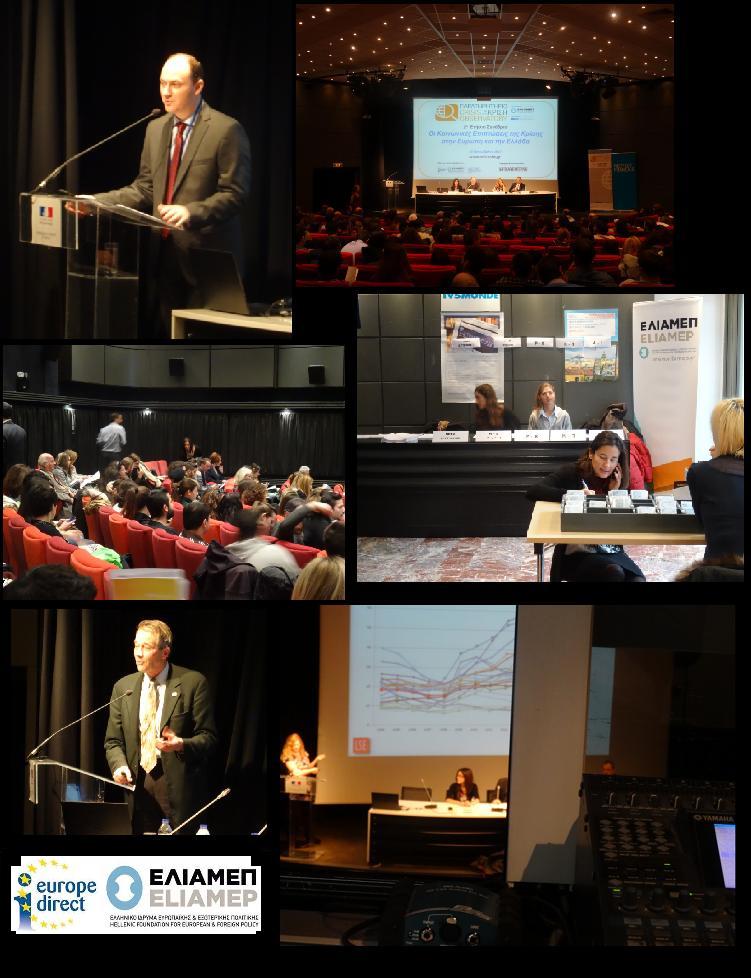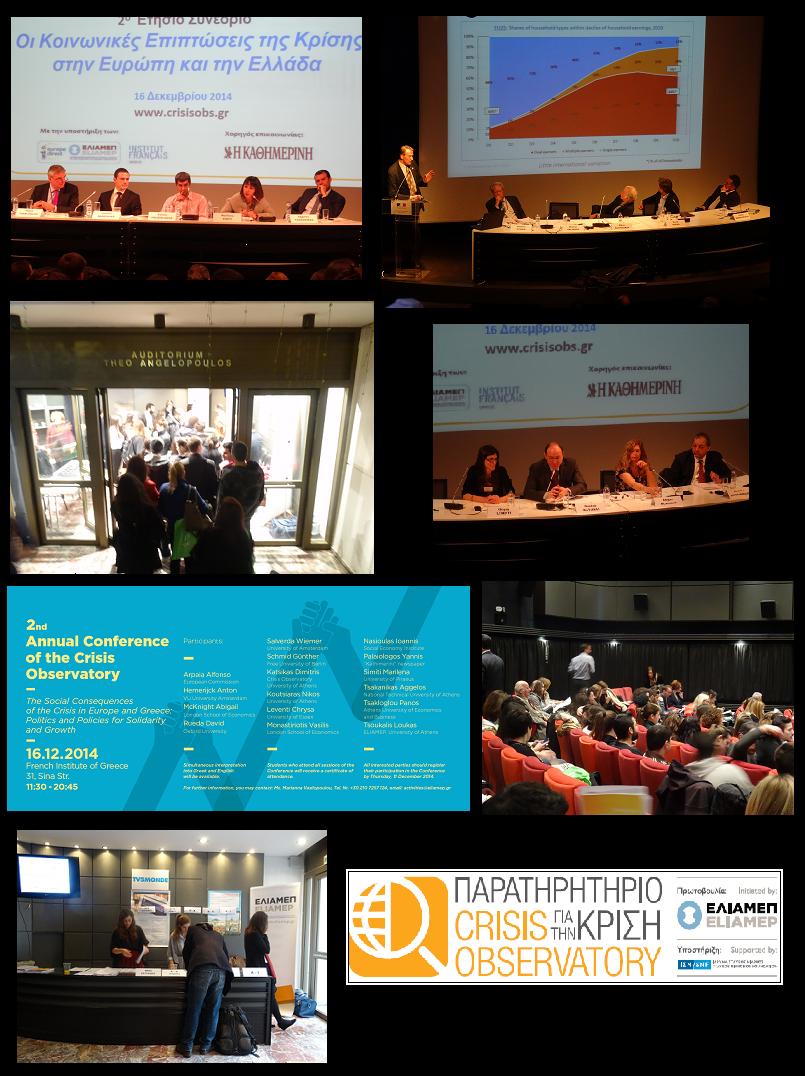The 2nd Annual Conference of the Crisis Observatory took place on Tuesday, 16 December at the French Institute of Greece (Athens). Co-organised by the Crisis Observatory and EuropeDirect ELIAMEP (central information service), the event attracted broad public and media attention: overall, more than 400 people attended the various sessions of the conference.
More specifically, the first session of the conference (The Social Consequences of the Crisis in Europe: An Overview), during which an overall assessment of the social consequences of the crisis in Europe and Greece was attempted, was coordinated by the Head of the Observatory, Dimitris Katsikas. Following Dr. Katsikas’ brief presentation of a recent report by the Crisis Observatory on the social profile of Greece, Chrysa Leventi, Senior Research Officer at the University of Essex, spoke on poverty and social exclusion in the EU. Next, Abigail McKnight, senior researcher at the London School of Economics (LSE), analyzed the socio-economic inequalities at the level of the EU, focusing particularly on intergenerational inequalities. The session was concluded with the presentation of Dimitri A. Sotiropoulos, Associate Professor at the University of Athens, who described the state of the welfare state in Southern Europe and came to the conclusion that the crisis affected mostly those who were already weak and unprotected.
The next session (A Crisis of the European Project or a Crisis of Capitalism?) discussed the question whether the adverse social phenomena observed in recent years crisis are related only to the crisis and accordingly the weaknesses of the European project or rather to the dynamics of capitalism per se. The session was coordinated by Assistant Professor Nikos Koutsiaras (University of Athens). Opening the session, Professor David Rueda (University of Oxford) talked about the tendency to reduce social expenditure over the past decades, particularly in relation to the labour market (active and passive labour market policies) and emphasized the increasing inequalities caused by this trend. For his part, Professor Wiemer Salverda (University of Amsterdam), referred to the characteristics pertaining to modern capitalism, such as the existence of households with two working adults instead of one, as well as to the problems caused by these characteristics with regard to measuring and understanding inequalities. Next, Associate Professor Vasilis Monastiriotis (London of Economics) presented his findings concerning a new class of employees, namely the working poor. He questioned the existence of a generalised trend towards a growing working poor phenomenon and focused instead on the role of national policies rather than on the effect of modern capitalism. Finally, Emeritus Professor (Free University of Berlin) Günther Schmid mentioned specific policies and institutions at the European level which could contribute to achieving sustainable and inclusive growth in Europe.
The third session (Pathways of Solidarity and Growth in Greece) was coordinated by Yannis Palaiologos, journalist at newspaper Kathimerini. The discussion focused on available options for solidarity and growth in Greece. Initially, Professor Panos Tsakloglou (Athens University of Economics and Business) talked about social policy in periods of fiscal adjustment, pointing out the adoption of targeted welfare policies during the crisis. Then, Associate Professor Marilena Simiti (University of Piraeus) addressed the issue of social solidarity and the enhanced role of the civil society throughout the crisis, referring to the Greek NGOs, as well as to the informal solidarity networks that have emerged, and concluding that they are unfortunately very heterogeneous and lacking coordination in their activities. Moving on with the session, Ioannis Nasioulas, Director of the Social Economy Institute, talked about social economy and its advantages as far as employment, cohesion and investments are concerned. Associate Professor at the National Technical University of Athens, Aggelos Tsakanikas, concluded the session with his presentation on entrepreneurship, emphasizing the increased importance of targeted and quality investment, innovation and knowledge-intensive entrepreneurship in general.
The last session of the conference, namely the roundtable discussion (Towards a Lost Decade? The Challenge of Solidarity and Inclusive Growth in Europe), was coordinated by the President of ELIAMEP, Professor Loukas Tsoukalis, who moderated the discussion between the public and Professors David Rueda, Wiemer Salverda, Günther Schmid and Panos Tsakloglou. The discussion was very interesting whereas; as it became apparent, the speakers were divided between the more and the less optimistic concerning the future of the EU. A central topic of the discussion was the general lack of trust, either between the national and supra-national levels, or within the member-states themselves, between the citizens and their political institutions. Lastly, all speakers agreed on the need to create supra-national, European institutions with increased capability to finance actions and policies, through some kind of fiscal union mechanism in order to overcome the crisis. However, they also agreed that the prospects for the necessary political compromise that such a union presupposes are not weak.
Click here, you can access the analytical programme of the event day.
* By clicking on the names of the speakers, you can download and read their respective presentations.
** By clicking on the respective title of each session, you can access (Crisis Observatory YouTube channel) and watch the videos of the conference.







